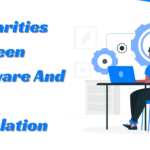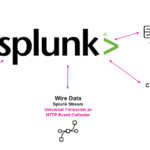Ethics in data annotation: building AI with responsibility and respect
- 1 Why ethical data annotation matters
- 1.1 The Role of workforce well-being in data labeling
- 1.2 Regulatory landscape for data labeling
- 1.3 Examples of unethical data labeling practices
- 1.4 Innovatiana’s ethical approach to data annotation
- 2 How Ethical Data Labeling Benefits Everyone
- 3 Moving forward: a call for ethical data annotation practices
- 3.1 Sources
The world of AI depends heavily on data annotation, the process that turns raw data into labeled information that AI models can understand and learn from. As data labeling fuels everything from medical diagnostics to driverless cars, ethical considerations in this field have become a topic of discussion. Companies like Innovatiana and CloudFactory are leading by example, prioritizing ethical practices that respect both the data itself and the workforce behind the annotations.
Why ethical data annotation matters
When performed ethically, data annotation drives technological advancements that benefit society. However, data labeling also brings challenges, especially concerning workforce treatment, data privacy, and the quality of labeling processes. Unethical practices in data labeling have led to incidents of exploitation, unregulated labor conditions, and privacy breaches. These examples highlight the need for ethical and transparent approaches.
The Role of workforce well-being in data labeling
In the push to label data faster and cheaper, some companies have overlooked the needs of the annotators who do the work. In many cases, data labeling tasks are outsourced to workers in developing countries, where labor laws may be less stringent, leading to low wages and inadequate working conditions.
Innovatiana, a company that specializes in data annotation, prioritizes the well-being of its workforce by implementing fair labor standards and creating supportive work environments. Innovatiana believes that valuing its annotators’ contributions results in higher-quality data, benefiting both the clients and the annotators.
Regulatory landscape for data labeling
Regulations surrounding data labeling aim to protect both workers and data privacy. Some critical regulatory frameworks include:
- General Data Protection Regulation (GDPR): Enforced in the EU, GDPR protects personal data and privacy. For data labeling, GDPR mandates that companies have a legal basis for data collection and that annotators understand the privacy implications of the data they handle.
- ILO standards on decent work: The International Labour Organization (ILO) advocates for fair wages, safe working conditions, and reasonable working hours. Companies operating in the data annotation industry, including Innovatiana, align with these standards to promote ethical and fair working conditions.
In truth, the regulatory landscape is evolving to ensure ethical practices and high-quality AI systems. In the United States, the National Institute of Standards and Technology (NIST) has developed the AI Risk Management Framework (AI RMF), which emphasizes the importance of data quality and integrity in AI development. The AI RMF outlines best practices for data labeling, including ensuring that datasets are accurate, representative, and free from biases. These guidelines aim to promote trustworthy AI systems by addressing potential risks associated with data annotation processes.
In the European Union, the Artificial Intelligence Act (EU AI Act) establishes a comprehensive framework for AI development and deployment. The Act mandates that datasets used for AI training must be accurate, representative, and free from biases to ensure the reliability and fairness of AI systems. This legislation directly impacts data annotation practices, emphasizing the need for high-quality data in training AI models.
These regulations set important standards, but companies must take extra steps to ensure ethical practices in their labeling workforces.
Examples of unethical data labeling practices
Several incidents have revealed unethical practices in the data labeling industry, prompting calls for more rigorous ethical standards:
- Exploitation of clickworkers: In some cases, companies used a “clickworker” model, paying workers minimal fees for each annotation without fair pay or benefits. Many of these workers reported poor working conditions, with long hours and low pay.
- Misuse of personal data: Privacy concerns surfaced when workers were asked to label personal data without proper safeguards. This data, often anonymized insufficiently, exposed individuals’ identities, violating privacy laws and ethical standards.
- Invisible workforce in data factories: Some tech companies were found to have outsourced data labeling to “data factories” where workers had little job security, low wages, and minimal worker rights.
- Clients refusing to pay workers: in some cases, workers would not be paid by buyers, despite the low payment they demand for this type of tedious work.
Innovatiana’s ethical approach to data annotation
Innovatiana operates under the principle that ethical data annotation requires treating annotators with dignity and respect. From ensuring fair wages and proper working hours to providing a supportive and transparent environment, Innovatiana exemplifies how data annotation can be performed ethically and responsibly. Learn more about Innovatiana’s approach to ethical data annotation, where the emphasis is on quality, privacy, and workforce wellbeing.
How Ethical Data Labeling Benefits Everyone
Ethical data labeling practices offer long-term benefits for companies and society:
- Higher quality data: Annotators who feel respected and valued are more likely to produce high-quality, accurate data, which in turn improves the performance of AI systems.
- Enhanced public trust: Transparent and ethical data practices build trust with consumers, particularly as awareness grows around issues like data privacy and workforce exploitation.
- Reduced legal risks: Compliance with labor laws and data privacy regulations minimize the risk of fines, lawsuits, and reputational damage.
Companies that uphold ethical standards, like Innovatiana, set a powerful example. By putting workforce wellbeing and data privacy first, they contribute to an AI ecosystem that serves society responsibly.
Moving forward: a call for ethical data annotation practices
Ethics in data annotation isn’t just a nice-to-have—it’s a necessity. As AI continues to integrate into our lives, the data that powers it must be handled with care and responsibility. Companies like Innovatiana are proving that ethical data annotation is possible by creating conditions that prioritize both data quality and the people behind it. By supporting businesses that lead with integrity, we can all contribute to a more ethical and sustainable AI landscape.
Sources
- Innovatiana – data annotation guide: Innovatiana provides a comprehensive guide to ethical data annotation, discussing essential topics such as data quality, privacy, and workforce wellbeing. Their approach emphasizes the importance of annotator dignity and respect, ensuring high-quality output and ethical standards. Innovatiana’s practices reflect a commitment to building datasets responsibly, contributing to a more ethical AI landscape.
- CloudFactory – ethical data labeling: CloudFactory is a global leader in providing data labeling services with a strong focus on ethical labor practices. Their model advocates for fair wages, safe working conditions, and training opportunities, especially for workers in developing regions. CloudFactory sets an example in the industry by aligning business goals with positive social impact, demonstrating how data annotation can foster both technological advancement and social good.
- International Labour Organization (ILO) – decent work standards: The ILO’s standards serve as a global benchmark for fair labor practices, emphasizing the need for adequate wages, secure working conditions, and workers’ rights. These standards are crucial in the data labeling industry, where fair treatment of workers and adherence to labor laws are essential. By advocating for decent work, the ILO supports the ethical development of industries worldwide, including data annotation.
















